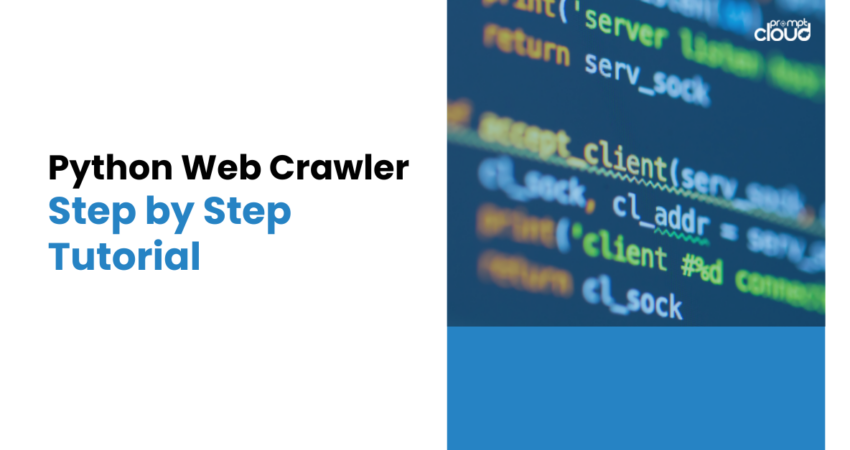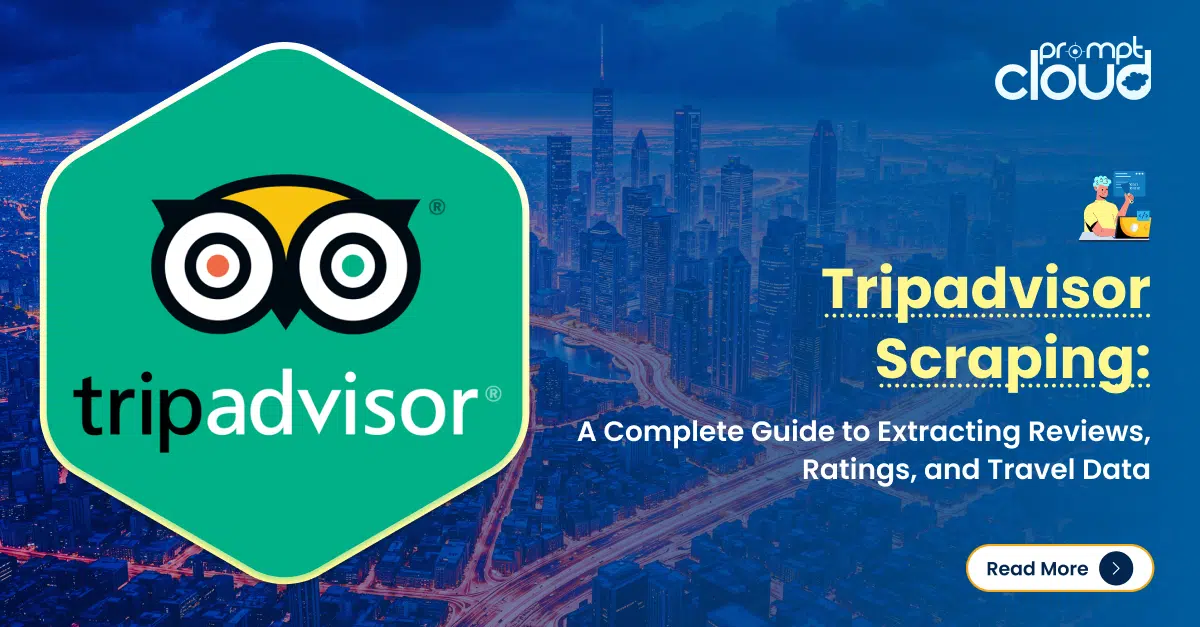
Web crawlers are fascinating tools in the world of data gathering and web scraping. They automate the process of navigating the web to collect data, which can be used for various purposes, such as search engine indexing, data mining, or competitive analysis. In this tutorial, we will embark on an informative journey to build a basic web crawler using Python, a language known for its simplicity and powerful capabilities in handling web data.
Python, with its rich ecosystem of libraries, provides an excellent platform for developing web crawlers. Whether you’re a budding developer, a data enthusiast, or simply curious about how web crawlers work, this step-by-step guide is designed to introduce you to the basics of web crawling and equip you with the skills to create your own crawler.
Python Web Crawler – How to Build a Web Crawler
Step 1: Understanding the Basics
A web crawler, also known as a spider, is a program that browses the World Wide Web in a methodical and automated manner. For our crawler, we’ll use Python due to its simplicity and powerful libraries. Python programmers will have complete knowledge of these basics, so you may skip and start with crawling the data directly.
Step 2: Set Up Your Environment
Install Python: Ensure you have Python installed. You can download it from python.org.
Install Libraries: You’ll need requests for making HTTP requests and BeautifulSoup from bs4 for parsing HTML. Install them using pip:
pip install requests pip install beautifulsoup4
Step 3: Write Basic Crawler
Import Libraries:
import requests from bs4 import BeautifulSoup
Fetch a Web Page:
Here, we’ll fetch the content of a web page. Replace ‘URL’ with the web page you want to crawl.
url = ‘URL’ response = requests.get(url) content = response.content
Parse the HTML Content:
soup = BeautifulSoup(content, ‘html.parser’)
Extract Information:
For example, to extract all hyperlinks, you can do:
for link in soup.find_all(‘a’): print(link.get(‘href’))
Step 4: Expand Your Crawler
Handling Relative URLs:
Use urljoin to handle relative URLs.
from urllib.parse import urljoin
Avoid Crawling the Same Page Twice:
Maintain a set of visited URLs to avoid redundancy.
Adding Delays:
Respectful crawling includes delays between requests. Use time.sleep().
Step 5: Respect Robots.txt
Ensure that your crawler respects the robots.txt file of websites, which indicates which parts of the site should not be crawled.
Step 6: Error Handling
Implement try-except blocks to handle potential errors like connection timeouts or denied access.
Step 7: Going Deeper
You can enhance your crawler to handle more complex tasks, like form submissions or JavaScript rendering. For JavaScript-heavy websites, consider using Selenium.
Step 8: Store the Data
Decide how to store the data you’ve crawled. Options include simple files, databases, or even directly sending data to a server.
Step 9: Be Ethical
- Do not overload servers; add delays in your requests.
- Follow the website’s terms of service.
- Do not scrape or store personal data without permission.
Getting blocked is a common challenge when web crawling, especially when dealing with websites that have measures in place to detect and block automated access. Here are some strategies and considerations to help you navigate this issue in Python:
Understanding Why You Get Blocked
Frequent Requests: Rapid, repeated requests from the same IP can trigger blocking.
Non-Human Patterns: Bots often exhibit behavior that is distinct from human browsing patterns, like accessing pages too quickly or in a predictable sequence.
Headers Mismanagement: Missing or incorrect HTTP headers can make your requests look suspicious.
Ignoring robots.txt: Not adhering to the directives in a site’s robots.txt file can lead to blocks.
Strategies to Avoid Getting Blocked
Respect robots.txt: Always check and comply with the website’s robots.txt file. It’s an ethical practice and can prevent unnecessary blocking.
Rotating User Agents: Websites can identify you through your user agent. By rotating it, you reduce the risk of being flagged as a bot. Use the fake_useragent library to implement this.
from fake_useragent import UserAgent ua = UserAgent() headers = {‘User-Agent’: ua.random}
Adding Delays: Implementing a delay between requests can mimic human behavior. Use time.sleep() to add a random or fixed delay.
import time time.sleep(3) # Waits for 3 seconds
IP Rotation: If possible, use proxy services to rotate your IP address. There are both free and paid services available for this.
Using Sessions: A requests.Session object in Python can help maintain a consistent connection and share headers, cookies, etc., across requests, making your crawler appear more like a regular browser session.
with requests.Session() as session: session.headers = {‘User-Agent’: ua.random} response = session.get(url)
Handling JavaScript: Some websites rely heavily on JavaScript to load content. Tools like Selenium or Puppeteer can mimic a real browser, including JavaScript rendering.
Error Handling: Implement robust error handling to manage and respond to blocks or other issues gracefully.
Ethical Considerations
- Always respect a website’s terms of service. If a site explicitly prohibits web scraping, it’s best to comply.
- Be mindful of the impact your crawler has on the website’s resources. Overloading a server can cause issues for the site owner.
Advanced Techniques
- Web Scraping Frameworks: Consider using frameworks like Scrapy, which have built-in features to handle various crawling issues.
- CAPTCHA Solving Services: For sites with CAPTCHA challenges, there are services that can solve CAPTCHAs, though their use raises ethical concerns.
Best Web Crawling Practices in Python
Engaging in web crawling activities requires a balance between technical efficiency and ethical responsibility. When using Python for web crawling, it’s important to adhere to best practices that respect the data and the websites from which it’s sourced. Here are some key considerations and best practices for web crawling in Python:
Adhere to Legal and Ethical Standards
- Respect robots.txt: Always check the website’s robots.txt file. This file outlines the areas of the site that the website owner prefers not to be crawled.
- Follow Terms of Service: Many websites include clauses about web scraping in their terms of service. Abiding by these terms is both ethical and legally prudent.
- Avoid Overloading Servers: Make requests at a reasonable pace to avoid putting excessive load on the website’s server.
User-Agent and Headers
- Identify Yourself: Use a user-agent string that includes your contact information or the purpose of your crawl. This transparency can build trust.
- Use Headers Appropriately: Well-configured HTTP headers can reduce the likelihood of being blocked. They can include information like user-agent, accept-language, etc.
Managing Request Frequency
- Add Delays: Implement a delay between requests to mimic human browsing patterns. Use Python’s time.sleep() function.
- Rate Limiting: Be aware of how many requests you send to a website within a given time frame.
Use of Proxies
- IP Rotation: Using proxies to rotate your IP address can help avoid IP-based blocking, but it should be done responsibly and ethically.
Handling JavaScript-Heavy Websites
- Dynamic Content: For sites that load content dynamically with JavaScript, tools like Selenium or Puppeteer (in combination with Pyppeteer for Python) can render the pages like a browser.
Data Storage and Handling
- Data Storage: Store the crawled data responsibly, considering data privacy laws and regulations.
- Minimize Data Extraction: Only extract the data you need. Avoid collecting personal or sensitive information unless it’s absolutely necessary and legal.
Error Handling
- Robust Error Handling: Implement comprehensive error handling to manage issues like timeouts, server errors, or content that fails to load.
Crawler Optimization
- Scalability: Design your crawler to handle an increase in scale, both in terms of the number of pages crawled and the amount of data processed.
- Efficiency: Optimize your code for efficiency. Efficient code reduces the load on both your system and the target server.
Documentation and Maintenance
- Keep Documentation: Document your code and crawling logic for future reference and maintenance.
- Regular Updates: Keep your crawling code updated, especially if the structure of the target website changes.
Ethical Data Use
- Ethical Utilization: Use the data you’ve collected in an ethical manner, respecting user privacy and data usage norms.
In Conclusion
In wrapping up our exploration of building a web crawler in Python, we’ve journeyed through the intricacies of automated data collection and the ethical considerations that come with it. This endeavor not only enhances our technical skills but also deepens our understanding of responsible data handling in the vast digital landscape.
Source: https://www.datacamp.com/tutorial/making-web-crawlers-scrapy-python
However, creating and maintaining a web crawler can be a complex and time-consuming task, especially for businesses with specific, large-scale data needs. This is where PromptCloud’s custom web scraping services come into play. If you’re looking for a tailored, efficient, and ethical solution to your web data requirements, PromptCloud offers an array of services to fit your unique needs. From handling complex websites to providing clean, structured data, they ensure that your web scraping projects are hassle-free and aligned with your business objectives.
For businesses and individuals who may not have the time or technical expertise to develop and manage their own web crawlers, outsourcing this task to experts like PromptCloud can be a game-changer. Their services not only save time and resources but also ensure that you’re getting the most accurate and relevant data, all while adhering to legal and ethical standards.
Interested in learning more about how PromptCloud can cater to your specific data needs? Reach out to them at sales@promptcloud.com for more information and to discuss how their custom web scraping solutions can help drive your business forward.
In the dynamic world of web data, having a reliable partner like PromptCloud can empower your business, giving you the edge in data-driven decision-making. Remember, in the realm of data collection and analysis, the right partner makes all the difference.
Happy data hunting!



















